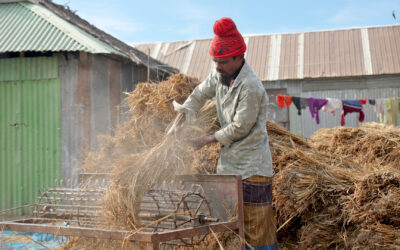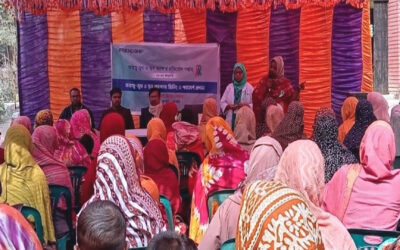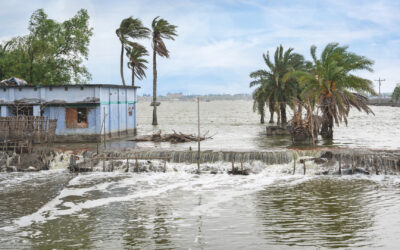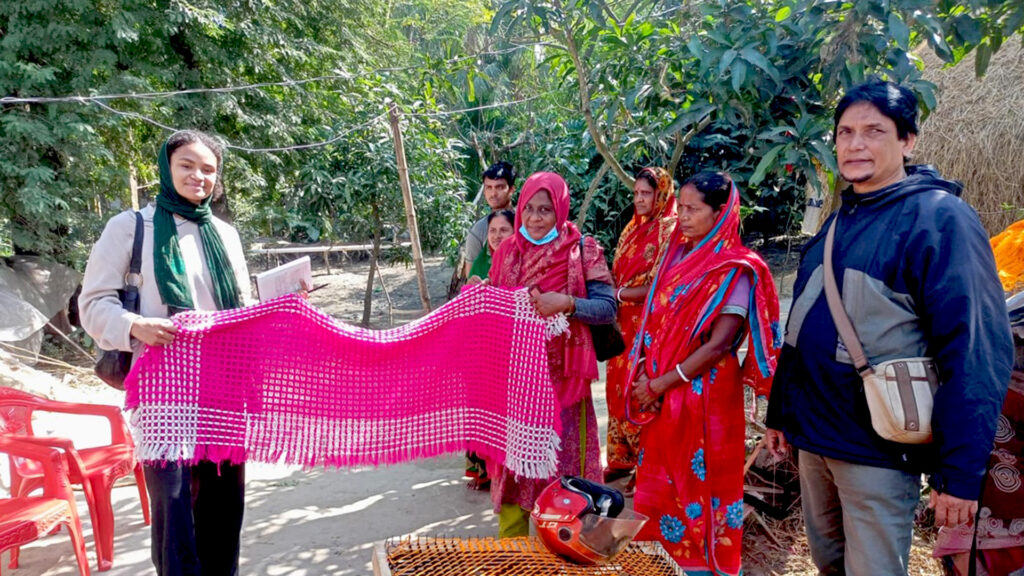
by Iffat Ara Sharmeen,
27 July 2025
When Lili, Monika, and Sima found financial independence through wool weaving, fellow women in their village followed suit and forged a new opportunity with dignity.
The village of Misreepara in Patuakhali district’s Kalapara Upazila was once a forgotten, marginalised, coastal area with little opportunity for sustainable development. Misreepara’s minority groups, especially women, struggled to make ends meet. It was the hard work of sisters Lili Rani, Sima Rani, and Monika Rani that inspired meaningful change within the village and helped them turn the tide.
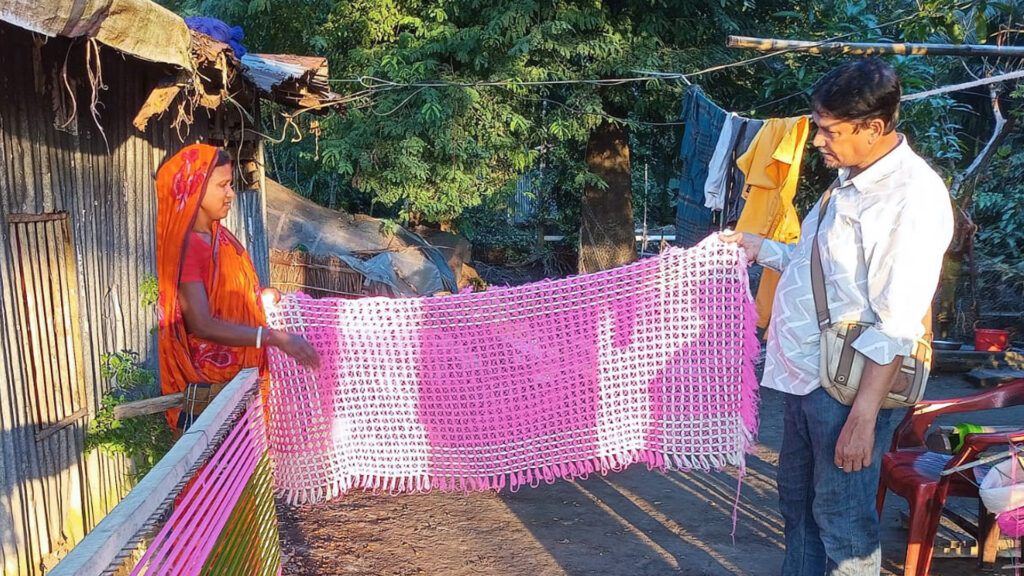
Their husbands were once daily wage labourers who barely managed to provide steady incomes. After Monika’s husband fell sick, the trio thought of taking matters into their own hands to solve their financial woes.
In January 2024, they joined the Assistance Sustainable Development (ASD) programme led by Friendship. As part of the project, they were trained in livestock rearing, vegetable cultivation, and duck farming by officers from the Upazila Livestock and Agricultural Offices. They received 12 ducks and vegetable seeds as initial support. They gradually started earning a steady monthly income and achieved significant savings.
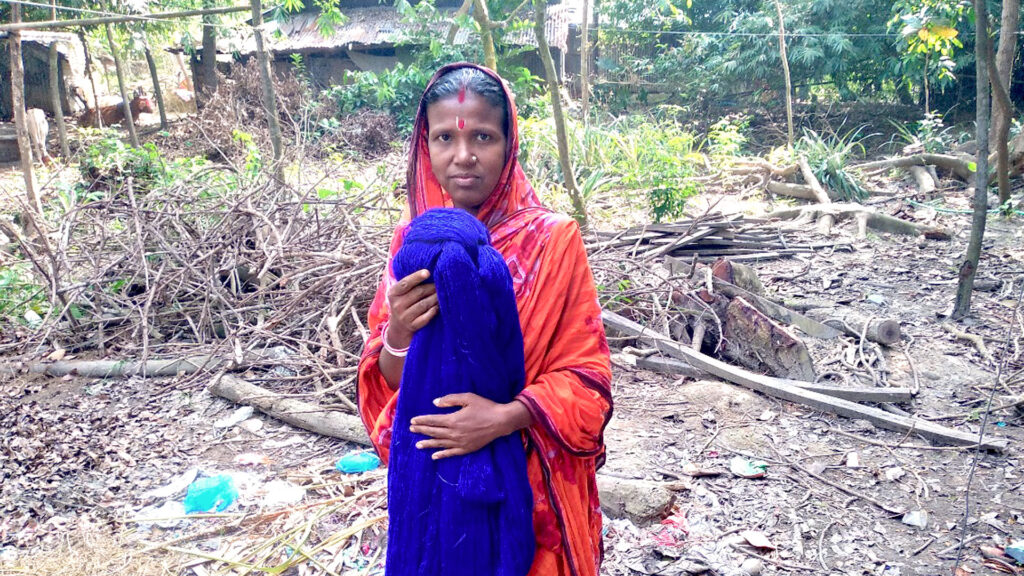
While their farms and gardens flourished, the sisters found another lucrative income-generating opportunity, i.e. making woollen sheets. The only problem was the lack of adequate seed money to purchase wool. After discussing their business plans with Friendship, they received some financial support. Their business took off and quickly soared in popularity all over the village.
Every day, they crafted two woollen sheets at home and sold them to the nearby Rakhine market, where local businessmen would place orders for more sheets. In one season alone, they successfully sold 359 sheets, equating to a total income of BDT 107,700.
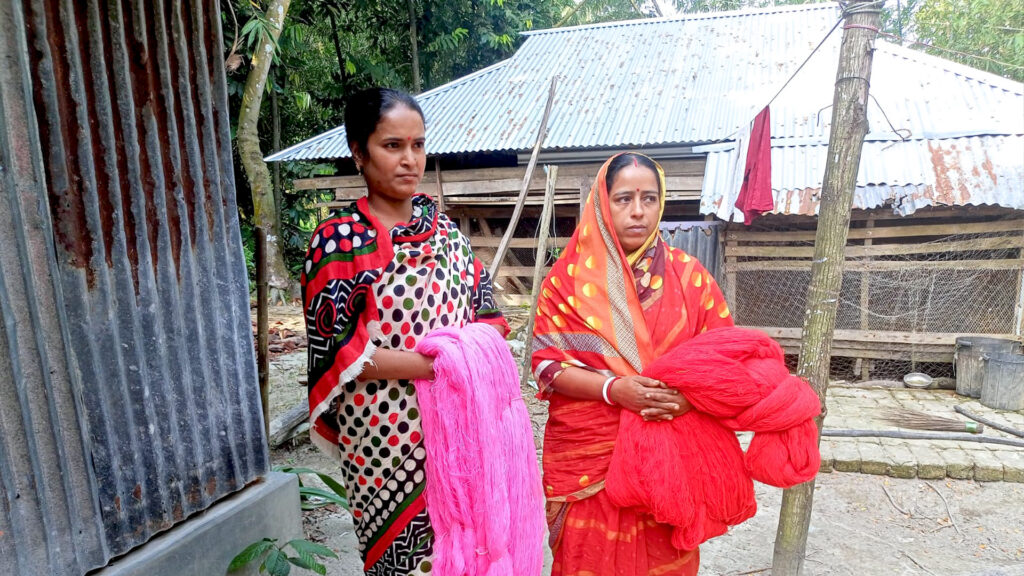
Around 25 women started practising wool weaving at home, like Lili, Monika, and Sim, shortly after. Now, 120 families benefit from wool weaving and farming in Misreepara.
Seeing the proactive steps of women, community leaders are now setting up a weaving hub for the women of Misreepara, i.e. a ‘Taat Palli’, where they can scale up production and diversify into other woollen products. They hope to receive more support in the form of financing, raw materials, and advanced training in weaving techniques and business management to take their success to new heights.
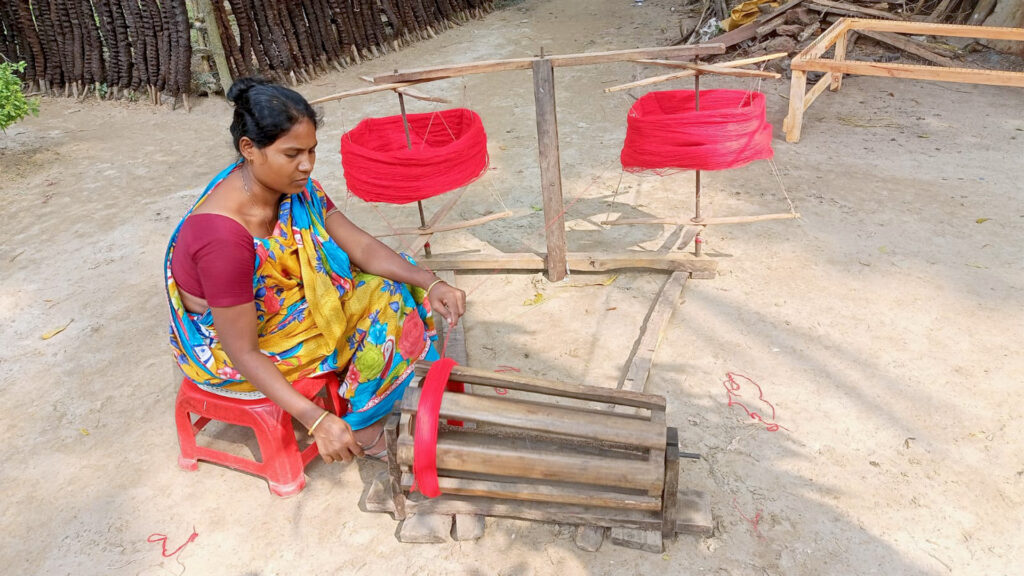
With newfound skills and support from Friendship, the burgeoning sisterhood of Misreepara now has more economic prosperity than ever through entrepreneurship and sustainable practices. A wider range of products, including gamcha towels, bed sheets, lungis, and others, is expected to be produced in the future.

